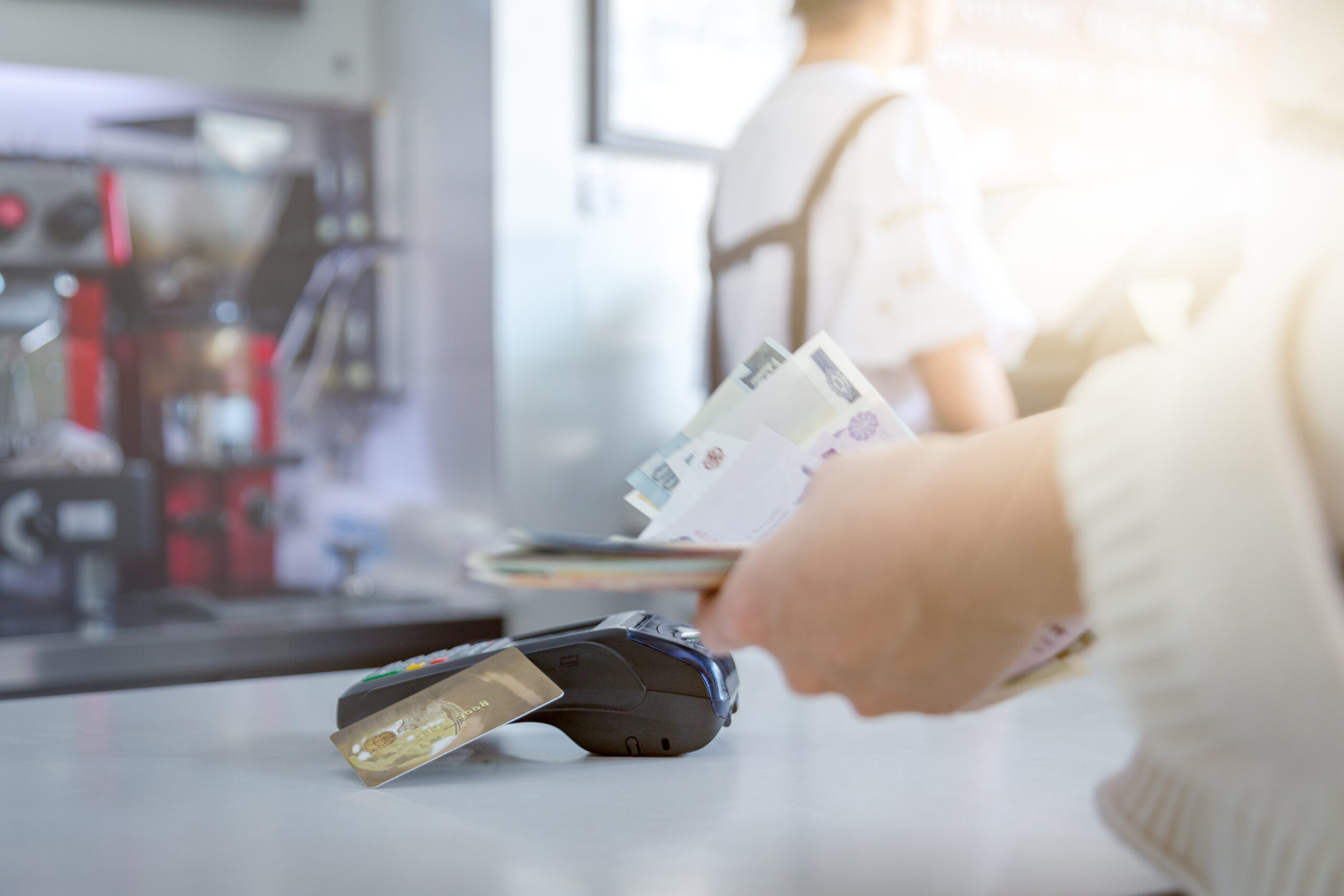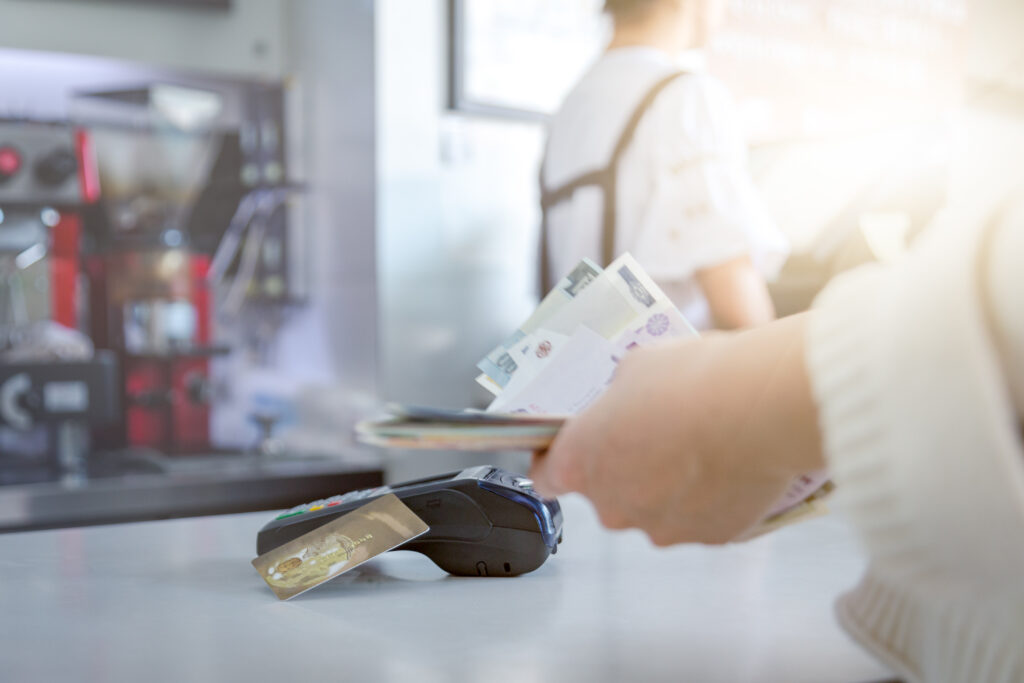
Is the payment world of the future cashless? With the rise of online payment systems, digital currencies, and online banking, it sure seems like it. But, what does that future consist of? Well, that’s what we will be discussing today as we examine the intricacies of the current state of payments.
But first, let’s look at it from a rational viewpoint. Cash has been here since the dawn of time – in varying forms, physical means of payment have always existed. So, what’s to say that they’re going to be disappearing anytime soon? And, on another note, the evolution of payment technologies has come a long way, rising above the need for traditional payment methods. So, in order to fully be able to discuss the future of money and payments, we will need to center both of these two talking points.

The Future of Cash Payments
___________
There are several different factors related to the future of cash payments. Below, we will discuss the most prominent ones.
Electronic Payment Methods
Electronic and digital payment methods are certainly on the rise, and what’s more, they’ve been rising in usage for quite a while now. Credit and debit cards, bank transfers, direct deposits, and online payments have been with us for a substantial amount of time. And, in the last decade, online payment gateways have become so widely utilized that many prefer to use them over more traditional payment methods.
Payment services such as PayPal, Zelle, CashApp, Stripe, and so on, have become popular due to several factors. The main three factors include convenience, speed of transfer, and global reach. These services allow you to send and receive funds within minutes, or even seconds. And, some are used by people paying for goods and services in day-to-day life across the globe.
Job Eliminations in Financial Institutions
Certainly, without cash, banks and other financial institutions would need to go through a substantial staff reduction. Since cash transactions require a lot more handling, their reduction and potential disappearance would also lead to certain positions no longer being necessary.
With that being said, the financial sector would still need employees. Though, with electronic payments in place, this number would be significantly smaller. Additionally, while some may view this change as a plus, others will view it as a minus.
Cash and Crime
The elimination of cash payments would significantly stunt criminal activity. After all, drug-related crimes and criminal operations largely function around cash payments. This is, naturally, due to the anonymity factor often associated with cash payments, which we’ll touch on later.
Another aspect is theft, which is far less of an issue in a world of credit and debit cards. After all, you can cancel a card after it’s been stolen, but once your cash is gone, it’s gone for good.
Cash and Privacy
Now, let’s leave the murky waters and discuss a clear benefit of cash – privacy. We touched upon the anonymous nature of cash previously, however, privacy is not only of value in the criminal world. It is also highly valued by the average person.
While electronic payments have high-security measures, you’re still not executing them privately. Sure, sometimes they’re the only option, like with online retail sites. However, having the option to choose cash payments, and therefore choose privacy, is essential.
Cash and Identity Theft
Cash payments are the greatest protection against identity theft in some financial transactions, and possibly even with certain businesses.
This is because the core advantage of cash is that it leaves no paper trail. While this reduces the prospect of recovering a defective or unsatisfactory product or service, it almost eliminates the possibility of identity theft. This is due to the fact that, if you pay with cash, you’re not leaving any information behind with the merchant.
While there are ways to mitigate the risk of falling victim to identity theft, it’s good to have a safer payment method at your disposal, for situations where electronic payments aren’t necessary.
Cash and Income
Sure, electronic payment methods are prevalent among the middle and upper classes, however, those of lower income mainly rely on cash.
The reason why lower-income households don’t rely on the banking system is bank fees. For example, unsteady income and deposits can often result in account closure.
Additionally, a varying percentage of people don’t use the Internet. While this number tends to fluctuate between those of low income, people living in rural areas and the elderly also seldom have access to the Internet. So, eliminating cash as a payment method could affect these parts of the population and make it harder for them to make necessary transactions.
Cash and Emergencies
Eliminating cash as a payment option carries even more serious risks. In case of disasters and calamities, most people would turn to cash payments, right? Correct, as can be noted whenever certain disruptions occur and people lean back onto cash payments again.
This is why an organized minimization of cash usage would also be a problem. If an emergency occurred and the digital infrastructure was at risk, people would have nothing to turn to as a means of payment. And, that would, understandably, cause an immense issue.
What Will Happen to Cash?
___________
So, what does the future of money hold? Well, it’s safe to say that the use of cash payments is declining steadily. However, eliminating the use of cash would be a very high-risk decision, so most governments will be hesitant to make it.
However, at some point, cash, as a form of payment, may actually cease to exist. However, that moment is decades away from this one, and even when it occurs, it will not be instantaneous.
For all, or even a few, governments to eliminate physical money as a payment method, entirely new, yet secure and dependable, systems would need to be established. These systems would need to be designed in ways that would make the usage of traditional payment methods obsolete. So, the bottom line is, for now, we can still utilize a balanced combination of electronic and traditional payment methods, weighing out the pros and cons of each for different situations.